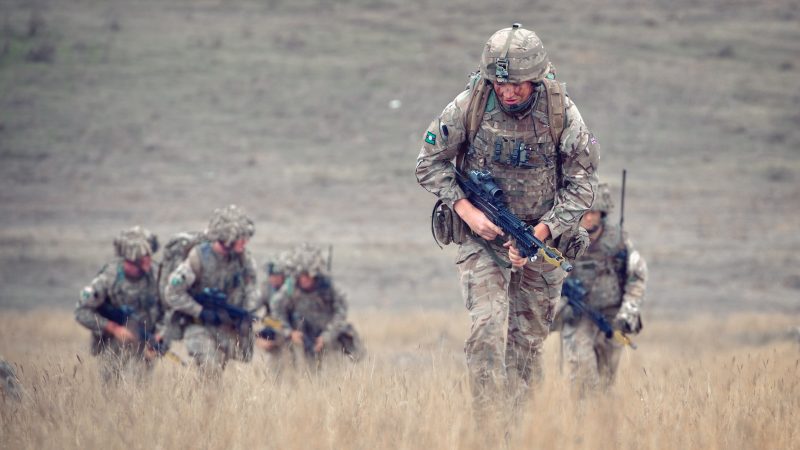
Keir Starmer has called on the government to prioritise British businesses with a ‘British-built by default’ approach in defence spending to protect UK jobs and boost manufacturing within the supply chain.
The opposition party has said that a new threshold is needed to justify equipment being sourced outside of the country, requiring proof that defence projects cannot be built under similar terms in the UK.
Labour has also demanded annual reporting on the proportion of defence spending going through UK companies and for improved procurement rules to “promote prosperity in supply chain businesses” in communities across the country.
“Prioritising British businesses through defence spending is not only investment in jobs, but in our communities, and a more secure economy,” Keir Starmer said.
“Under this Prime Minister, we have seen broken promises and dither and delay, at the expense of UK supply chain businesses and taxpayer’s money.
“We cannot go back to business as usual. Labour will protect jobs in the defence sector, harness the skills and talents of our workers, and will deliver value for money for British people, to ensure a prosperous recovery out of the pandemic.”
Labour accused the government of breaking its promises to taxpayers and the armed forces with its “open competition by default” approach to defence spending that it says has seen the UK buying “off-the–shelf” equipment from overseas.
According to analysis from the opposition party, more than £6bn of spending recently set out by the government will be spent on purchases of surveillance aircraft from overseas.
Labour highlighted that a naval contract worth £1.5bn for fleet support ships has been unfulfilled since 2018, “due to ministerial indecision about making the contract British-led”, and that 30,000 defence sector jobs have been lost since 2010.
“The Prime Minister has already broken promises made to military personnel by cutting 10,000 posts in the army. On the Tories’ watch, we have also lost tens of thousands of jobs across the industry and wasted time on key contracts,” John Healey said.
The Shadow Defence Secretary added: “Of course, there will be essential equipment or systems which makes strategic sense for Britain to develop with allies or to buy direct from overseas, but we want to see a much higher bar for this.
“When done well, defence spending has a multiplier effect, strengthening our UK economy. Covid has exposed the risks of relying on foreign supply chains. Labour’s ‘British by default’ policy would strengthen the UK’s sovereignty and security.”
The Ministry of Defence has defended its strategy, arguing that its policies will “ensure home-grown skills and enterprise are fully harnessed as we move away from global competition by default and lean towards British built”.
An MoD spokesperson said: “Combined with a commitment to spend £85bn on equipment over the next four years, defence will generate and sustain thousands of highly skilled jobs, driving prosperity throughout the country.”
According to ADS, the defence industry currently provides 132,000 direct UK jobs, down from 162,000 in 2010. The combined aerospace, defence, security and resiliency, and space sectors support up to one million jobs in the UK supply chain.




More from LabourList
‘After years of cuts, Labour’s local government settlement begins to put things right’
‘The Sherriff of Wild Westminster: what must change in elections bill’
‘The hope that kills you’: Reflections from the final day in Gorton and Denton